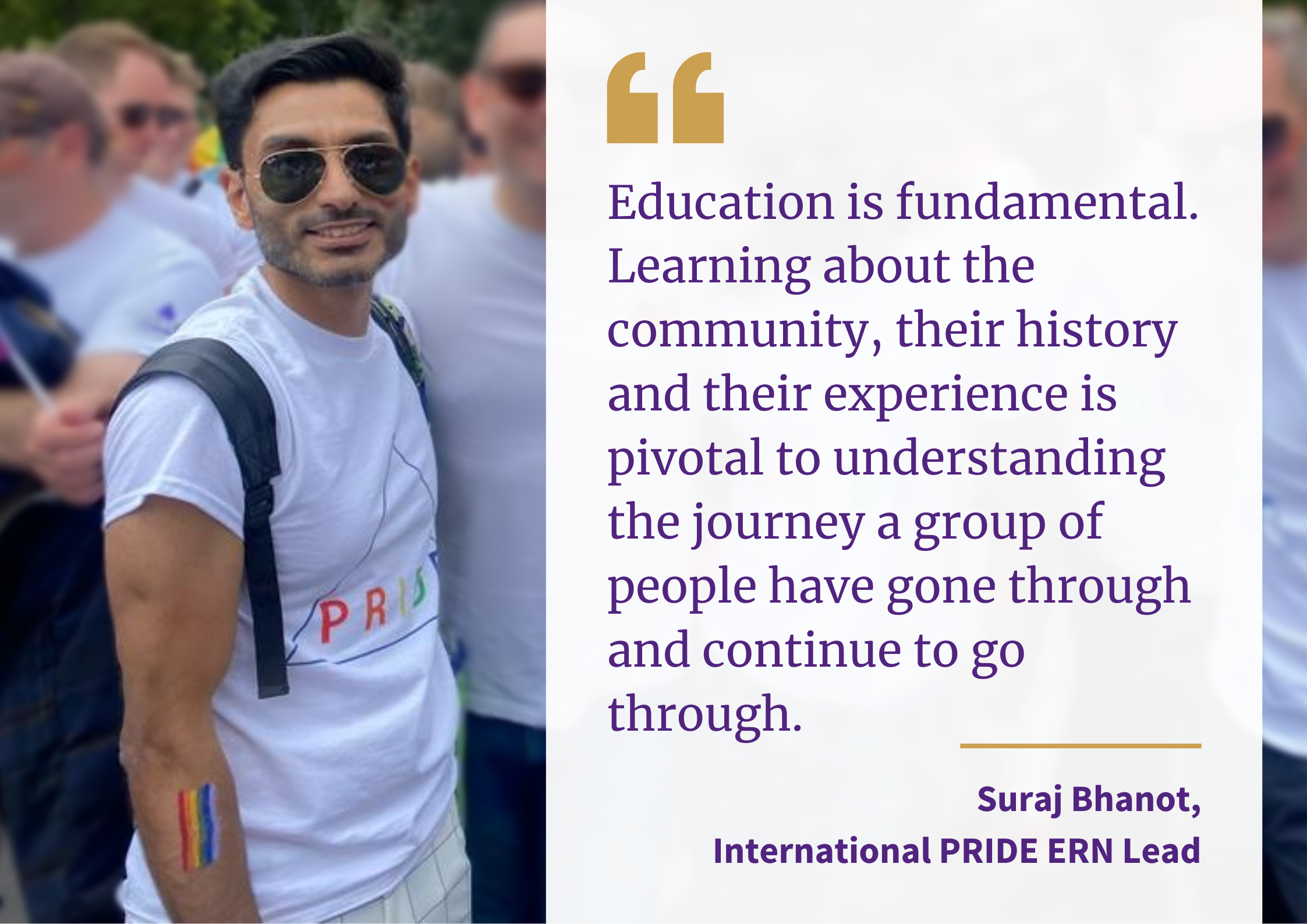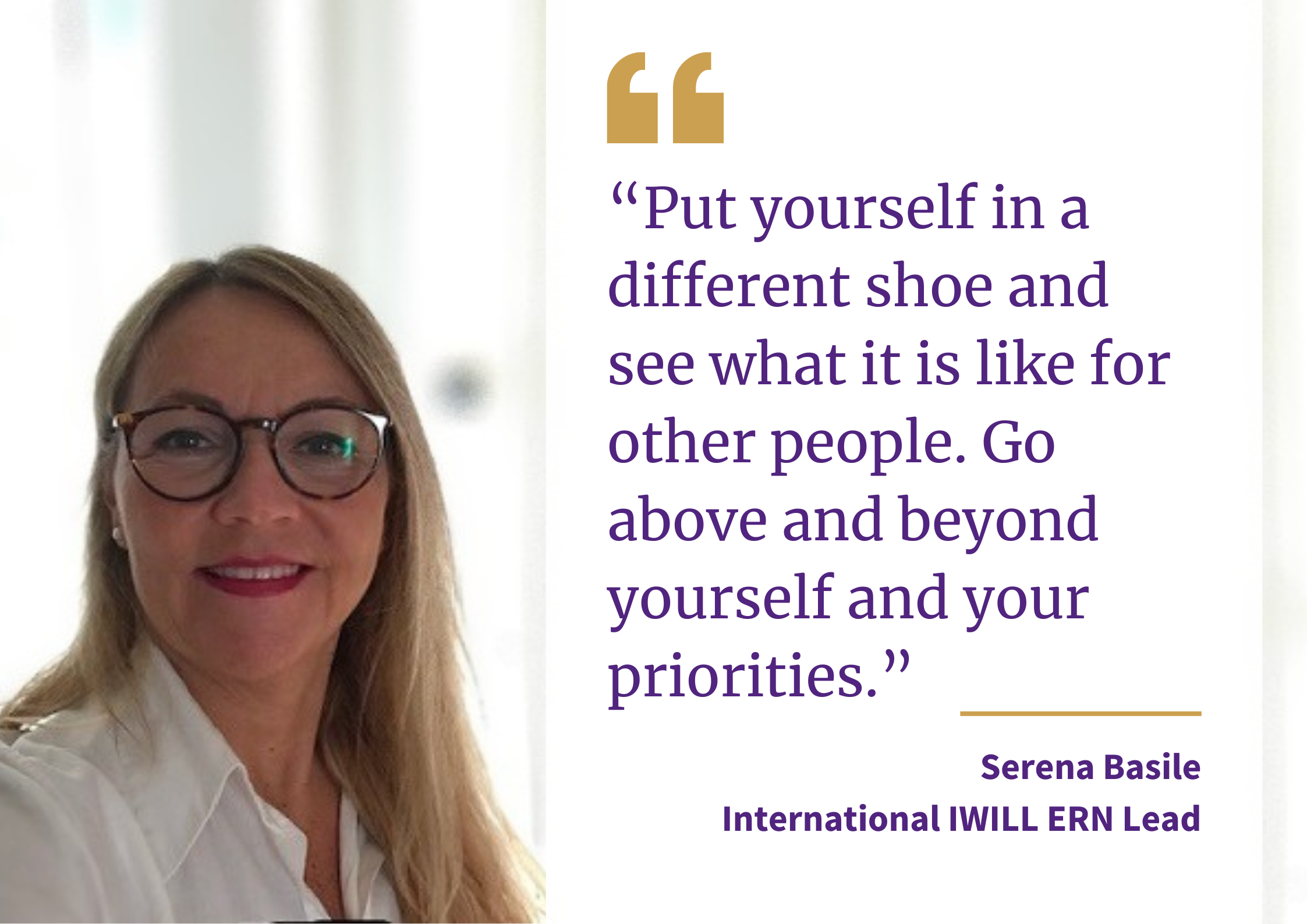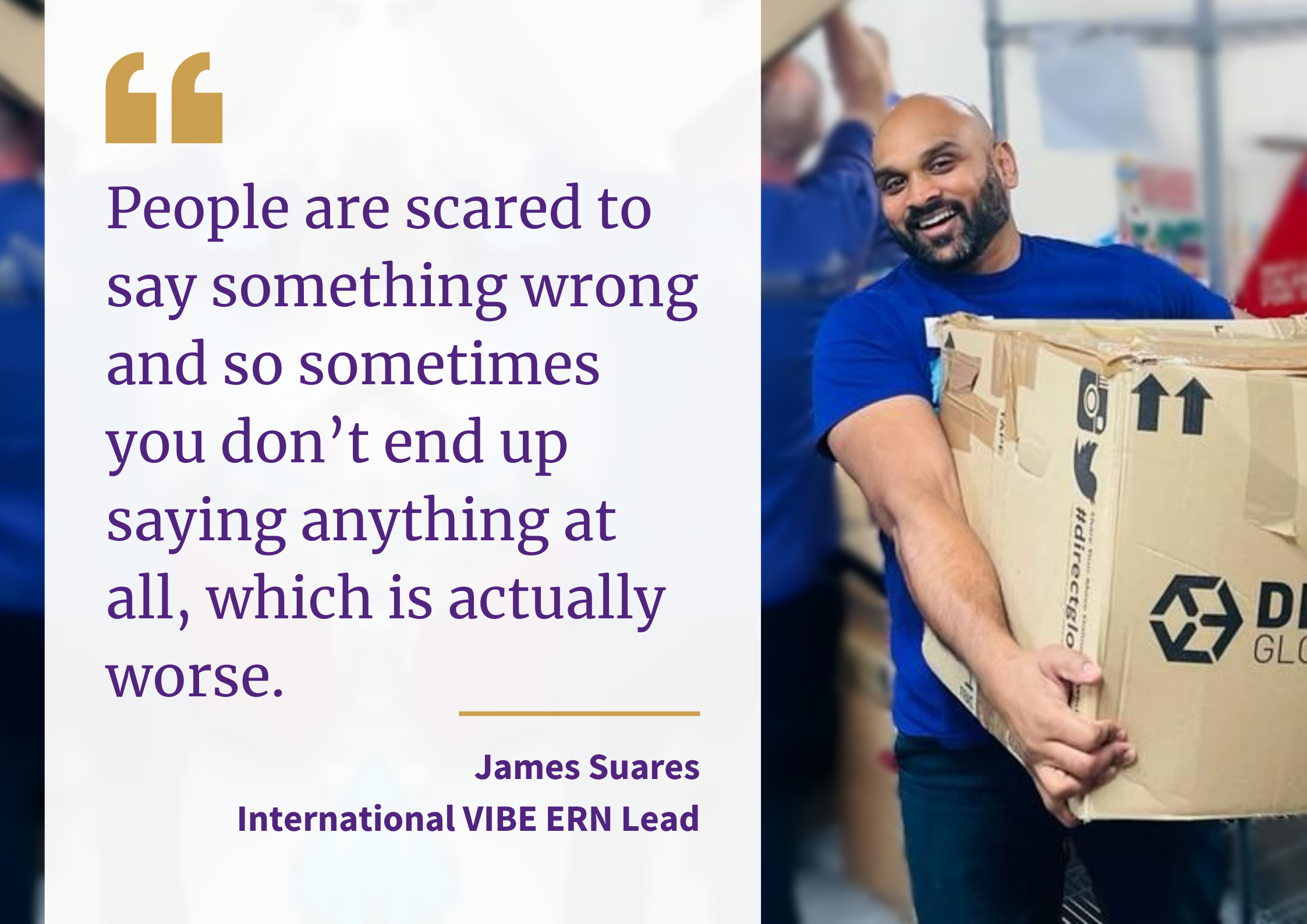One of my most rewarding learning experiences of late has been my reverse mentoring experience. I had the opportunity to be paired with a leader from VIBE (Vertex Includes Boundless Ethnicities), one of Vertex’s four global Employee Resource Networks (ERNs). Together, we discuss everything from listening to the perspectives of others to connecting with people outside of our immediate circles. One theme we keep coming back to, no matter what subject we discuss, is the power of allyship. Acts of allyship can be incredibly meaningful — according to Forbes, people with at least one ally in their workplace are nearly twice as likely to feel like they belong.
This week at Vertex, we're celebrating our sixth annual Inclusion, Diversity and Equity (ID&E) Week with the theme “Catalysts for Change.” Our ERNs wholly embody this theme in the work they do every day to strengthen a sense of community and belonging at Vertex. That’s why it felt like the perfect opportunity to hear their thoughts about allyship and how we can all become catalysts for change. Our ERN co-leads — Serena from IWILL (Inspiring Women in Leadership and Learning), James and Leyla from VIBE, and Suraj from Vertex PRIDE — came together to tell me what allyship means to them and the steps we can all take to be active allies. My thanks to Serena, James, Leyla and Suraj for their time and honesty in exploring this important topic within the wider ID&E context.
What is an ally?
I learned that to be an ally is not a status but rather a process of learning and unlearning, re-evaluating, and amplifying voices that haven’t traditionally been heard in society. It’s about being open to listening without judgement and taking time to hear someone’s experience without trying to put your own experience on top of that. To simply say that you are an ally is not enough — it is our actions that are truly meaningful.
“An ally is a person that actively and intentionally advocates to promote a culture of inclusion and equity in places where you can make an impact. Anyone can be an ally.” – Leyla
“Being open to listening without judgement.” – James
“You can’t just self-declare that you are an ally. I think that’s where a lot of people trip up and it becomes performative.” – Suraj
“Be an amplifier of actions and behaviors.” – Serena
Allies can use their influence to benefit those who come from underrepresented groups or a group that has been historically marginalized. Acts of allyship may help people break through the barriers they face and ultimately make them feel more comfortable, heard, accepted and valued.
The importance of education and unlearning

It was interesting to hear our ERN co-leads discuss the importance of education — and unlearning — to being an ally. Importantly, as they explained, this doesn’t mean placing the burden of education on communities, but rather educating yourself on these topics by being curious, asking questions, showing a willingness to learn, and taking it upon yourself to do research without directly asking a person to share their experience with you. Taking this time to learn helps facilitate a more meaningful conversation with another person in which you can learn more about their lived experience. What’s more, we agreed that education needs to be a continuous journey in which allies continue to listen and learn from communities.
As I reflected on this point, I realized I had undergone a process of education myself, when as a company we began encouraging our people to share their pronouns in email signatures and digital profiles. While this is a small act, with the help of our ERNs I discovered it can carry huge meaning for some individuals, and encourages all of us to discuss, learn (and unlearn) about pronouns, creating a more inclusive and welcoming environment.
“Learning (and in some cases unlearning) is an important first step in allyship. Get to know colleagues’ experiences and stories of discrimination; be prepared to go outside of your comfort zone. Having an understanding of individuals’ lived experiences and perspectives can lead to greater empathy and thus stronger advocacy.” – Leyla
Supporting someone to speak up

In our conversation, our ERN leaders also highlighted to me the difference leaders and managers can make in the workplace by considering how different backgrounds, cultures and experiences may impact an individual at work. One example was being seen as not speaking up in meetings, and the worry that this could negatively impact career progression. I found it eye opening to hear that this example, that could easily be overlooked or dismissed, can be rooted in cultural differences, or result from difficulties in being acknowledged in meetings. This highlighted a key part of allyship to me — talking to individuals and understanding how to amplify their voices in more challenging environments.
Making a long-standing commitment to ID&E

Becoming a true ally takes time and consideration. Based on my experience, it requires active listening to many different voices and working to ensure that everyone has a seat at the table. At Vertex, we have a long-standing commitment to building a truly inclusive, diverse and equitable workforce, and we recognize that achieving this requires investment and commitment at all levels.
My work towards active allyship is a continuous journey, and our ERN co-leads have a number of calls to action for anyone wanting to nurture a culture of allyship. The first is to engage with reverse mentoring, where executives are paired with individuals from underrepresented groups to build awareness of the barriers they face and equip them with the tools and resources to become allies and powerful advocates for inclusion.
“Having different minds at the table in a team is far more energetic than having every person of the same thought and mindset, which would be utterly boring.” – James
The second is that everyone should be encouraged to join their workplace’s ERNs and make a conscious effort to learn about the different groups. Joining one does not mean giving up 100% of your time but is a great way to learn from somebody else’s experience.
“I would like to see people genuinely interested in learning about other dimensions of diversity they are not aware of and joining all ERNs, participating in as many cultural events as possible.” – Serena
Finally, and most importantly, if you are going to do one thing right now — be curious about other people. It’s common to be afraid of saying the wrong thing and therefore not say anything at all. But this has its own problems. Our ERN co-leads described being an ally as a learning journey where it’s okay to make a mistake as long as you are open to being corrected.
Making a long-standing commitment to ID&E
I’m inspired by the next generation including my own children who are embracing diversity every day and being genuinely curious to learn about the differences that make us unique. In the future, I see them being part of a society where difference is embraced and fostering ID&E is at the core of every organization. Our ERNs play an incredibly important role in helping to create safe spaces to address barriers but also to come together in celebration — just as we do for ID&E Week. However, ultimately, it’s important for us all to be the catalysts for change and champion an inclusive and equitable society that enables all people to thrive. By consciously taking action to be an ally through learning (and unlearning where needed), being curious, and taking the time to recognize how we can amplify the voices of others, together we can create a better world for everyone.
“Everyone can be an ally if they make the time to understand the diversity around them.” – Suraj

